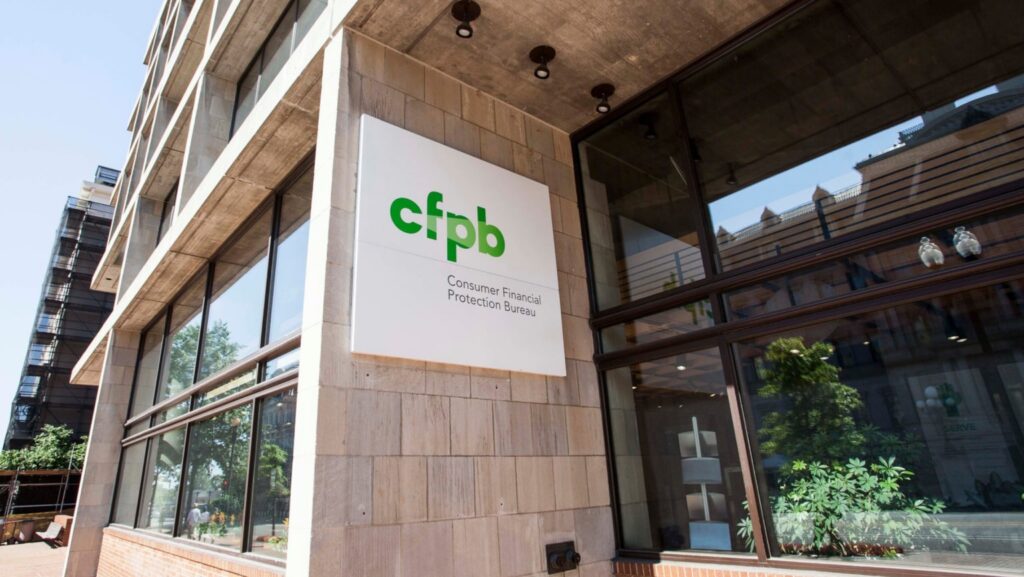A recent court opinion in CFPB v. USASF Servicing, LLC highlighted questionable practices of a financial institution that violated consumer protection laws. On August 28, 2024, the U.S. District Court for the Northern District of Georgia granted the Consumer Financial Protection Bureau (CFPB) a partial default judgment against USASF Servicing, LLC (“USASF”) that resulted from the CFPB’s investigation of widespread unfair and questionable practices by USASF in servicing auto loans. Many of the allegations are quite disturbing and revealed a “dark side” of one financial institution in its vehicle loan practices.
The question that arises after reading this lawsuit is how widespread are these unfair and questionable practices within the auto finance industry?
Overview of The Lawsuit
USASF, a servicer of auto loans originated by its affiliate U.S. Auto Sales, Inc., faced allegations of engaging in several unlawful practices:
- The wrongful activation of starter-interruption devices (SIDs)
- Failure to secure and apply refunds for unearned Guaranteed Asset Protection (GAP) premiums
- Double billing for collateral protection insurance (CPI)
- Misapplication of consumer payments, and
- Wrongful repossessions of service member owned vehicles.
The CFPB asserted that the above practices violated federal consumer protection laws and caused substantial harm to consumers across the Southeastern United States.
The court’s judgment emphasized the severe impact of USASF’s practices, which included thousands of instances of erroneous loan servicing actions. Notably, USASF’s recent bankruptcy filing did not shield it from accountability, as the court recognized the CFPB’s enforcement action as falling under the “police power” exception to the automatic stay provisions of bankruptcy law. This exception allowed the court to proceed with the enforcement of the judgment and reaffirmed the court’s position that consumer protection cannot be sidelined by corporate insolvency.
Key Violations and Practices
The lawsuit against USASF accuses the company of engaging in multiple unfair practices that harmed consumers. As discussed above, the following violations were central to the lawsuit:
1. Starter-Interruption Devices (SIDs)
Since 2016, USASF installed starter-interruption devices (SIDs) in vehicles it financed, enabling the company to emit warning tones or disable vehicles when consumers missed payments. According to the complaint, the CFPB alleged that USASF wrongfully activated warning tones more than 71,000 times and disabled vehicles at least 7,500 times. These actions often occurred despite consumers being current on their payments or after the company had explicitly promised not to disable their vehicles. The disruptions caused by these erroneous actions severely impacted consumers’ lives and access to transportation.
2. Guaranteed Asset Protection (GAP) Premiums
GAP insurance, which covers the deficiency balance on a loan if a vehicle is totaled, became a second focal point by the CFPB of USASF’s violations. According to the complaint, the CFPB alleged that USASF failed to secure over $1 million in refunds for unearned GAP premiums when vehicles were repossessed, or loans were charged off. Additionally, for consumers who paid off their loans early, USASF did not automatically request refunds for unearned GAP premiums unless explicitly asked, resulting in more than $6 million in lost refunds. This failure to act on behalf of consumers exhibited a lack of concern for their financial interests and demonstrates a disregard for their rights under consumer protection laws.
3. Collateral Protection Insurance (CPI)
According to the complaint, the CFPB alleged that USASF erroneously billed consumers for Collateral Protection Insurance (CPI)—insurance protecting lenders when borrowers lack adequate auto insurance—at least 34,000 times. These errors, which included double billing during a single cycle, amounted to nearly $1.9 million in overcharges. Consumers affected by these practices often faced undue financial strain and erroneous reporting to credit agencies, further damaging their financial standing and creditworthiness.
4. Misapplication of Payments
According to the complaint, the CFPB alleged that USASF’s servicing practices included the misapplication of consumer payments, where extra amounts were applied to late fees or CPI charges rather than accrued interest. This misapplication occurred at least 8,738 times over a five-year period, causing consumers to incur over $1.2 million in additional interest and fees. Such errors not only increased the financial burden on consumers but also led to confusion and distrust in the loan servicing process, as payments were not applied as they should have been according to the loan agreements.
5. Wrongful Vehicle Repossessions
Importantly, the CFPB also alleged that USASF wrongfully repossessed vehicles 78 times due to administrative failures, including not processing payment holds or deferral agreements. These errors extended to violations of the Servicemembers Civil Relief Act (SCRA), which protects active-duty military personnel from vehicle repossessions without a court order. In some instances, consumers’ vehicles were repossessed even when payments had been made or promises to pay were in place. Such wrongful repossessions violated consumers’ legal rights and caused unnecessary stress and hardship, especially for military personnel who are entitled to special protections under federal law.
The Court’s Findings
The court’s decision was based on well-documented evidence, including admissions from USASF and declarations from affected consumers. The court concluded that USASF’s practices constituted significant violations of the CFPA, resulting in substantial harm to consumers that could not be reasonably avoided and were not outweighed by any benefits. The evidence showed that these were not isolated incidents but part of a systematic pattern of errors and unfair actions affecting a large number of consumers.
Although the court deferred its ruling on the final monetary damages, it granted injunctive relief to prevent future violations. The injunction, though largely symbolic given USASF’s ceased operations, reinforced broader regulatory expectations for auto loan servicers. This ruling highlights the importance of holding financial institutions accountable for their practices, particularly when those practices harm consumers and undermine trust.
Legal and Industry Implications
The CFPB v. USASF Servicing, LLC lawsuit emphasizes the need for financial institutions to comply with consumer protection laws. The decision offers several key lessons for the industry:
- Accountability in Loan Servicing: Auto loan servicers must establish robust policies and systems to prevent erroneous actions, such as wrongful SID activations or billing errors. Failure to do so can result in significant legal and financial repercussions, as seen in this lawsuit. Servicers need to ensure that all actions taken with respect to consumers are justified and in line with applicable laws and regulations.
- Obligation to Refund Unearned Premiums: Financial institutions have a duty to proactively refund unearned premiums for add-on products like GAP insurance. Policies requiring consumers to request these refunds impose undue burdens and are likely to draw regulatory scrutiny. The failure to honor this responsibility led to substantial harm to consumers in the USASF lawsuit and serves as a warning for other institutions handling similar products.
- Fair Payment Allocation: Properly applying consumer payments to accrued interest before late fees or ancillary charges is essential for maintaining trust and compliance with contractual obligations. Misapplication of payments undermines the integrity of the loan servicing process and can lead to unfair financial consequences for consumers, as demonstrated by USASF’s actions.
- Repossession Standards: Adhering to clear and lawful repossession policies, including compliance with state notice requirements and federal protections for servicemembers, is vital to avoid liability. USASF’s wrongful repossession practices violated these standards and demonstrated the legal and financial risks that come with non-compliance. Financial institutions must be diligent in ensuring that their repossession processes adhere to both state and federal laws.
Broader Lessons for Financial Institutions
The CFPB’s enforcement action against USASF serves as a cautionary tale for financial institutions. To mitigate risks, companies must prioritize consumer protection through proactive compliance measures, including:
- Regular Audits: Routine reviews of loan servicing practices can identify and address systemic issues before they result in widespread consumer harm. Audits can help detect errors such as wrongful SID activations, misapplied payments, and improper billing before they spiral into significant legal challenges.
- Enhanced Training: Staff involved in loan servicing and repossessions should receive thorough training on regulatory requirements and ethical practices. Well-trained employees are better equipped to handle consumer inquiries and disputes, reducing the risk of costly mistakes and legal violations.
- Transparent Policies: Clear, consumer-friendly policies regarding payment applications, add-on products, and repossessions are essential for building trust and minimizing disputes. Financial institutions must provide consumers with accessible information about how their payments will be applied, what their rights are, and how they can resolve issues that arise.
- Use of Technology: While tools like SIDs can enhance collections efficiency, their deployment must be governed by rigorous oversight and strict adherence to consumer protection laws. Technology can be a valuable asset, but it should never come at the expense of consumer rights or legal compliance.
Conclusion
The recent opinion in CFPB v. USASF Servicing, LLC reinforces the CFPB’s commitment to holding financial institutions accountable for practices that harm consumers. This lawsuit not only provides a framework for understanding regulatory expectations but also underscores the importance of fair and transparent operations in the auto finance industry.
The question that arises after reading this lawsuit is how widespread are these unfair and questionable practices within the auto finance industry? If you have experienced any of the five issues in your vehicle loan as found by the CFPB in the lawsuit against USASF Servicing, LLC, or subjected to improper billing, or impacted by other unfair auto loan servicing practices, contact FS CORPS immediately. We specialize in helping clients seek compensation and justice for the financial harm caused by violations of consumer protection laws. Let our experienced team guide you through the process of holding financial institutions accountable for their unlawful actions.


Author
Mike Simkus
Attorney/Founder, FS CORPS